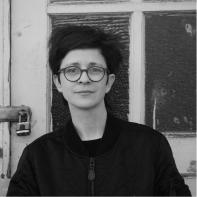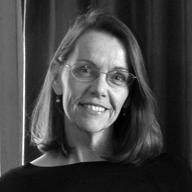 This Tuesday, we are proud to feature a podcast of SR contributor Katie Flynn reading her short story from Issue 17.
This Tuesday, we are proud to feature a podcast of SR contributor Katie Flynn reading her short story from Issue 17.
You can listen to the podcast on our iTunes channel, podcast #230.
You can follow along with Katie’s short story in Superstition Review, Issue 17.
More about the author:
Katie M. Flynn is Fiction Editor at the Indianola Review. Her stories have appeared or are forthcoming in Barrelhouse, Carve, Flyway, Monkeybicycle, Paper Darts, and elsewhere. She’s been nominated for a Pushcart Prize twice and holds an MFA from the University of San Francisco. Recently, she completed her first novel about love, revenge, and uploaded consciousness. When she’s not writing, she’s teaching herself classical guitar, nerding out over chess, or chasing her two kids through the wilds of San Francisco.





